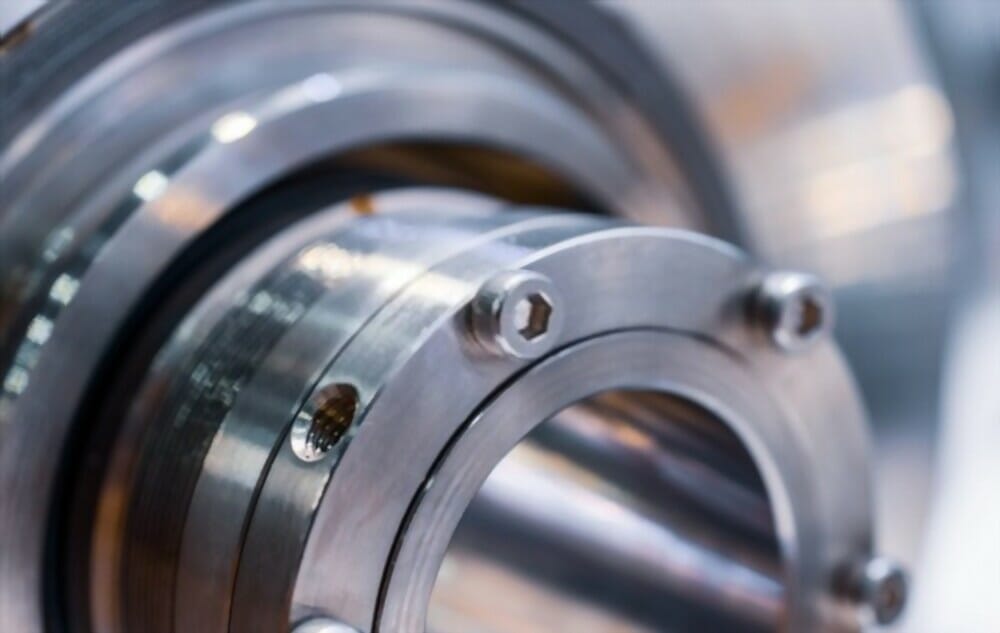Have you ever wondered about the differences between mechanical seals and gland packing? These two sealing methods are commonly used in various industrial applications, but they have distinct characteristics and advantages.
In this blog post, we’ll explore the key differences between mechanical seals and gland packing, helping you make informed decisions for your specific sealing needs.

What is gland packing
Gland packing, also known as compression packing, is a traditional sealing method used to prevent leakage around rotating or reciprocating shafts in pumps, valves, and other mechanical equipment.
It consists of braided or twisted strands of flexible material, such as graphite, PTFE, or aramid fibers, which are compressed into the stuffing box around the shaft.
What is a mechanical seal
A mechanical seal is a modern sealing device designed to provide a highly efficient and reliable seal between rotating shafts and stationary housing in various industrial applications, such as pumps, compressors, and mixers.
It consists of two main components: a stationary seal ring mounted in the housing and a rotating seal ring attached to the shaft. These rings are precision-machined and lapped to create a smooth, flat sealing surface.
The sealing action is achieved by maintaining a thin fluid film between the stationary and rotating seal faces, which are held together by a combination of hydraulic pressure and spring force.

Difference Between Mechanical Seal and Gland Packing
Type of Fluid Being Pumped
Mechanical seals are better suited for handling a wide range of fluids, including those that are toxic, corrosive, or highly viscous. They provide a more reliable seal and can prevent leakage of dangerous substances.
Gland packing is better suited for pumping less harmful fluids like water or mild chemicals.
Leakage Control
Mechanical seals offer superior leakage control compared to gland packing. They are designed to maintain a tight seal and prevent any fluid from escaping the pump.
Gland packing, while still effective at reducing leakage, may allow small amounts of fluid to escape over time, especially as the packing wears down.
Energy Efficiency
Mechanical seals are more energy-efficient than gland packing. They create less friction and require less power to operate, resulting in lower energy consumption and operating costs.
Gland packing, due to its design, generates more friction and heat, which can lead to increased energy usage.
Cost
Gland packing is generally less expensive than mechanical seals. The materials used in gland packing, such as graphite or PTFE, are more affordable compared to the precision components found in mechanical seals. However, the long-term costs associated with gland packing, such as more frequent replacements and higher energy consumption, should be considered.
Pressure and Temperature
Mechanical seals are capable of withstanding higher pressures and temperatures compared to gland packing. They are designed to maintain their sealing properties even under extreme conditions.
Gland packing may begin to degrade or lose its effectiveness when subjected to high pressures or temperatures, leading to increased leakage and reduced pump efficiency.
Maintenance Requirements
Gland packing requires more frequent maintenance and replacement compared to mechanical seals. As the packing wears down over time, it needs to be adjusted or replaced to maintain an effective seal.
Mechanical seals, while still requiring periodic maintenance, have a longer lifespan and require less frequent interventions.
Applications
The choice between mechanical seals and gland packing often depends on the specific application. Mechanical seals are preferred in industries where leakage prevention is critical, such as chemical processing, oil and gas, and pharmaceuticals.
Gland packing is more commonly used in applications with less stringent sealing requirements, such as water treatment, pulp and paper, and some general industrial processes.
FAQs
Can mechanical seals and gland packing be used interchangeably?
In some cases, mechanical seals and gland packing can be used interchangeably, but it depends on the specific application, pressures, and fluids involved.
Which is easier to install?
Gland packing is generally easier to install, as it can be cut to size and compressed around the shaft, while mechanical seals require precise alignment and installation.
Which has a longer lifespan?
Mechanical seals typically have a longer lifespan than gland packing, as they are designed to provide a more durable and reliable seal.
Can gland packing be used as a temporary solution?
Yes, gland packing can be used as a temporary solution in some cases, such as when a mechanical seal needs to be replaced and a spare is not immediately available.
In conclusion
Mechanical seals and gland packing serve similar purposes but differ in design, performance, and maintenance requirements. Consider factors such as application, budget, and environmental impact when selecting the appropriate sealing solution for your system.
Contact a trusted supplier to discuss the best option for your specific needs.

